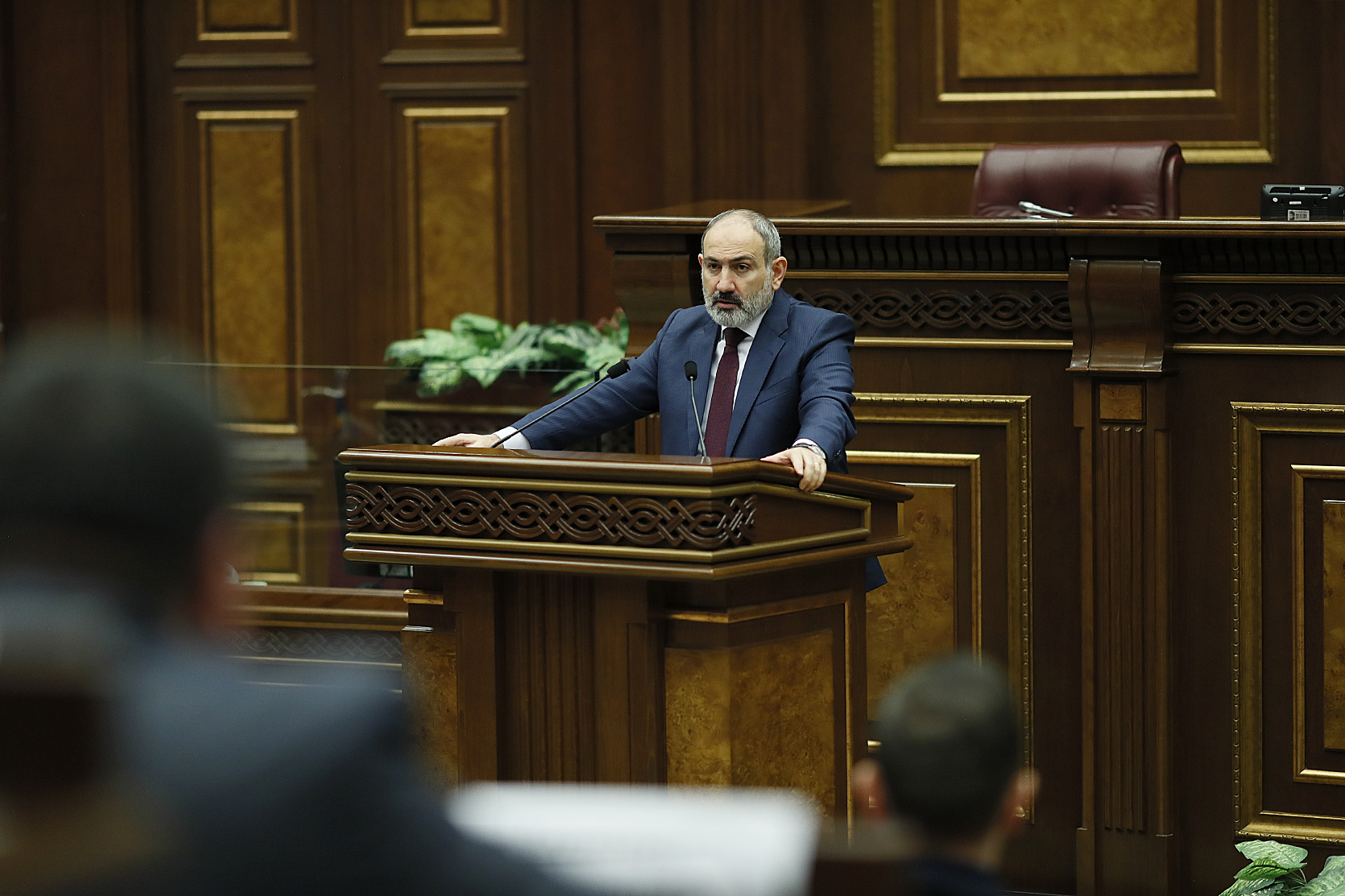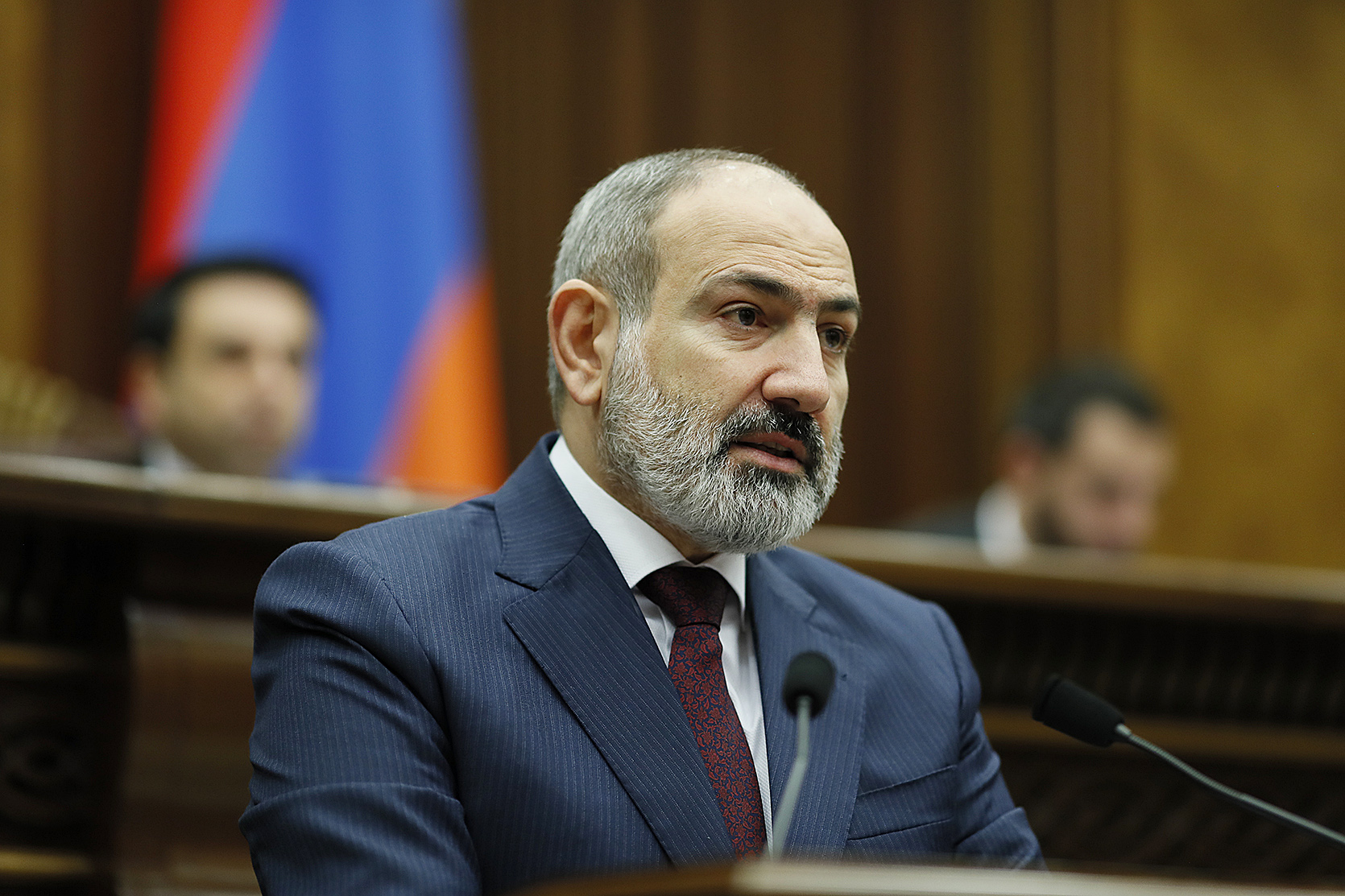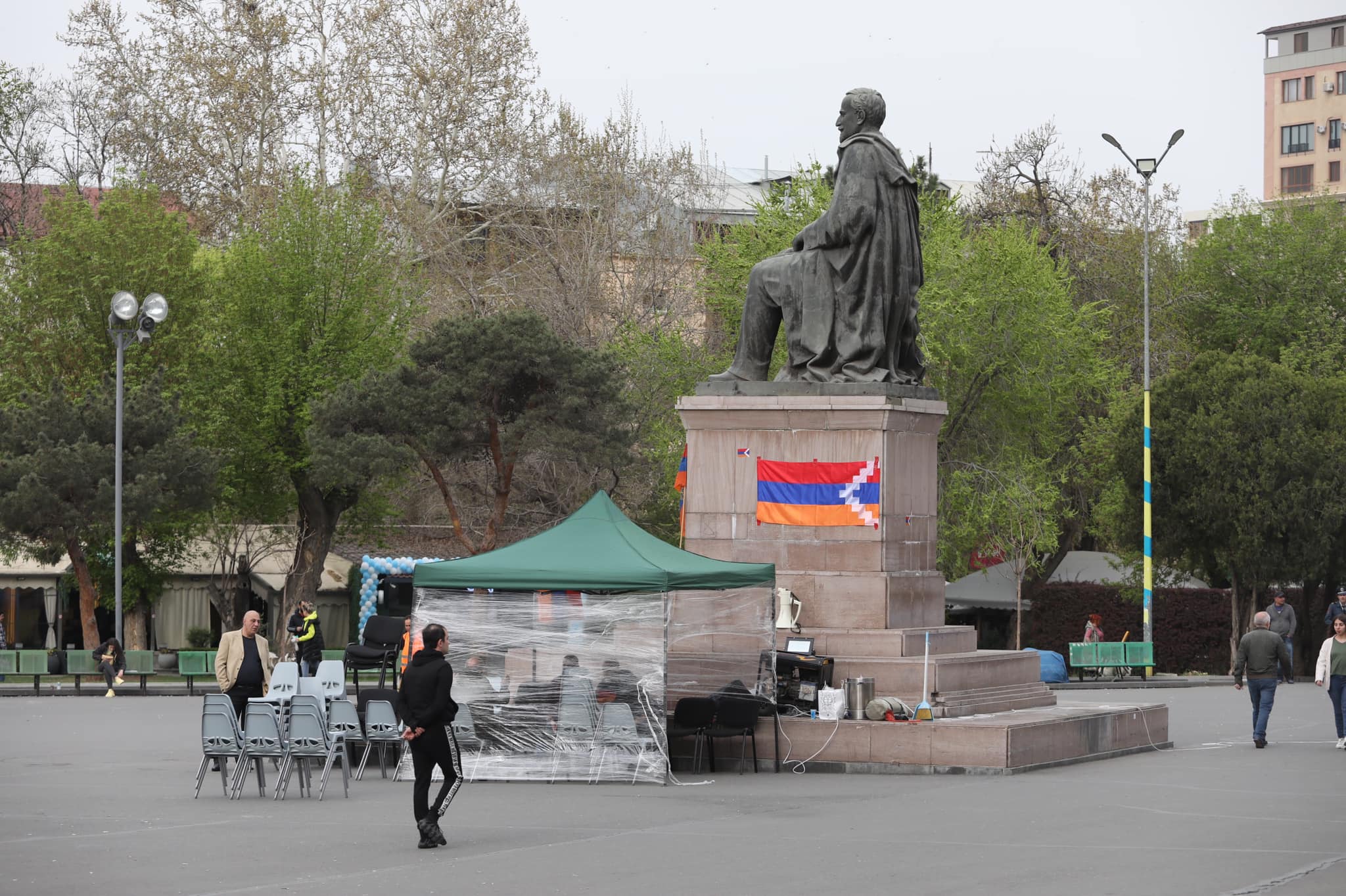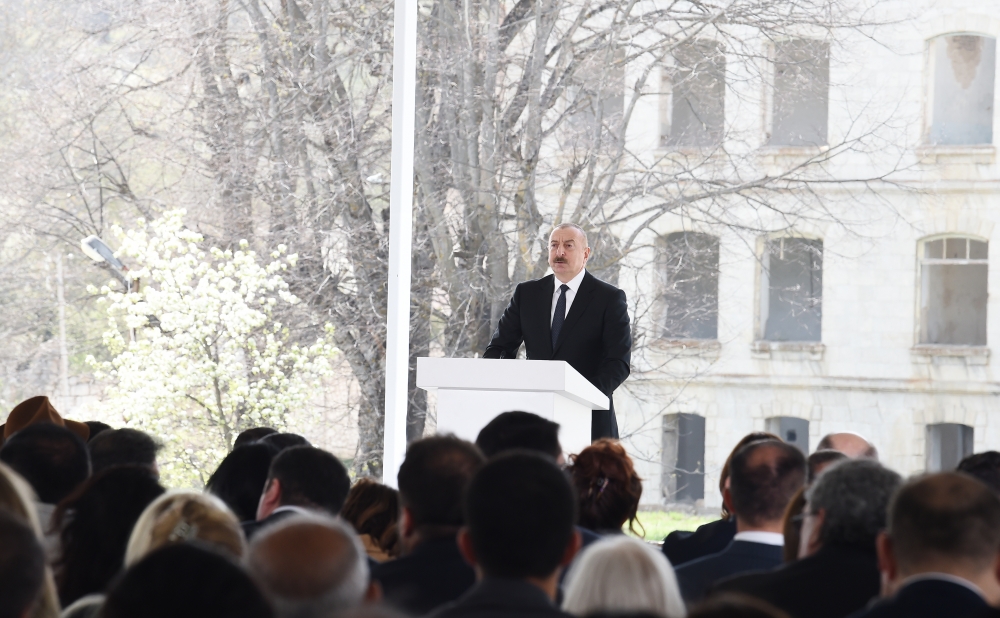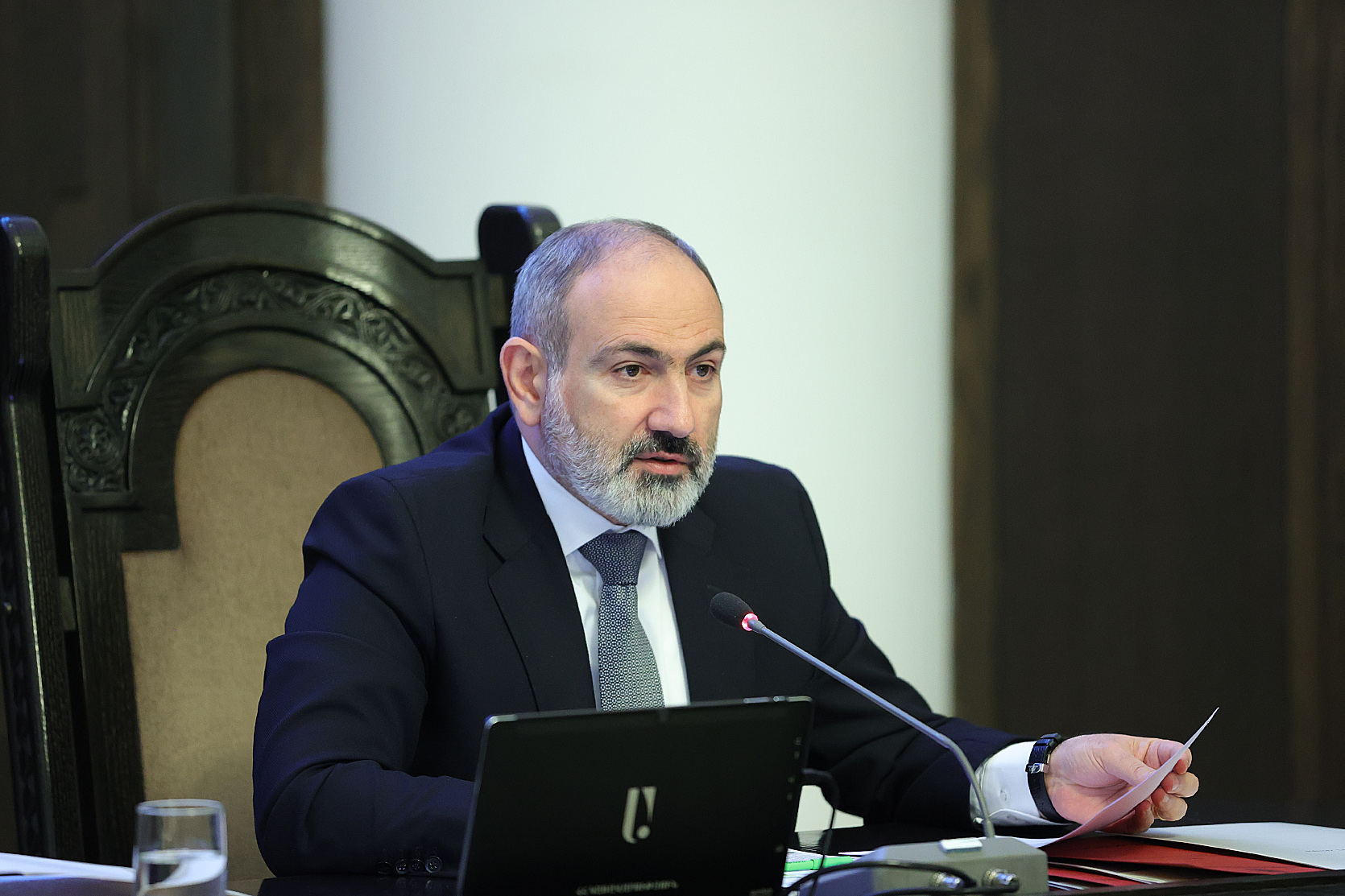What should be expected from Karabakh talks between Armenia and Azerbaijan?
Nagorno-Karabakh issue and the signing of a peace treaty
Despite the ongoing war in Ukraine and the attention of world centers being diverted to it, certain processes are also going on around the unrecognized Nagorno-Karabakh Republic with the active participation of Moscow, Brussels and Washington. If before, the mediators acted together, in particular, in the format of the OSCE Minsk Group, now Russia and the West have distanced from each other.
Under these conditions, Yerevan and Baku are trying to maintain a balance in delegating issues to mediators, while advancing their agenda in negotiations around a peace treaty. The initiative continues to remain with Azerbaijan, which is trying to consolidate the results of the 2020 war and force Yerevan to abandon its demand for the independent status of Nagorno-Karabakh.
- Armenian opposition takes to streets – will there be a second Velvet Revolution?
- PM Pashinyan, President Putin meet amid war in Ukraine and tensions in Armenia
- Op-ed: “Role of mediators decreases as Yerevan, Baku enter direct dialogue”
Partners expect “lowering the bar on Karabakh” – who and why?
Another activation of the topic of Karabakh began with the last meeting between Armenian Prime Minister Nikol Pashinyan and Azerbaijani President Ilham Aliyev, mediated by the President of the European Council Charles Michel. Following the talks, Pashinyan stated in the session hall of the country’s parliament:
“Today the international community is telling us: lower your bar a little on the status of Nagorno-Karabakh, and you will ensure greater international consolidation around Armenia and Artsakh. Otherwise, says the international community, please don’t count on us – not because we don’t want to help you, but because we can’t help you”.
At the same time, the Prime Minister of Armenia did not specify what the international community means in this case, that is, where the proposal to lower the bar came from. Considering that the statement was made after the talks in Brussels, it can be suggested that it comes from European partners. And there is a certain logic in this.
Russia continues to be the main beneficiary of the conflict. The post-war status quo assumes Russia and Turkey as the main parties that have the greatest influence on decision-making.
The positions of the EU and the US have significantly weakened. And the final solution of the Nagorno-Karabakh issue would lead to a reverse process, when not only Russian peacekeepers would not be needed in the unrecognized republic, but the role and influence of Russia in the two countries would also significantly decrease.
It is rather difficult to imagine that Moscow insists on changing Yerevan’s requests. The Russian authorities clearly expect to gain a foothold in Karabakh and are not going to withdraw troops in three years.
However, in Armenia, the subject of discussion, as expected, is slightly different. What does it mean to “slightly lower the bar on the Karabakh issue”? After the signing of the ceasefire agreement in 1994, Yerevan actively promoted the principle of the right of peoples to self-determination.
Speaking about the status of the Nagorno-Karabakh Republic, the Armenian authorities meant only one thing – independence. If official Yerevan decides to change its policy, this will actually mean agreeing to Karabakh becoming a part of Azerbaijan, Karen Igityan, an expert on regional issues, notes:
“If the deputies from the ruling party had not specified what they were talking about, these words could have been interpreted differently. But now the message is clear: either we must lower the bar, or there will be a new war. And the ruling party says the following – for years we have adhered to the policy that Karabakh cannot be part of Azerbaijan, but now time has shown that this is not the case. In fact, we are talking about lowering the bar to autonomy within Azerbaijan”.
The reaction of the authorities of Nagorno-Karabakh
The 2020 war not only changed the status quo in Karabakh, but also destroyed the established system of relations between Yerevan and Stepanakert. Over time, it becomes more and more difficult to hide the obvious discrepancy between the positions of the two centers. However, the statement of the NKR Parliament on Pashinyan’s speech really became unprecedented in terms of the harshness of the wording:
“Not a single government has the right, under the pretext of “peace”, to lower the bar for negotiations on a status unacceptable for Artsakh, as well as on the right to self-determination. Any negotiation process on the forcible annexation of Artsakh to Azerbaijan undermines not only the statehood of Artsakh, but also the inalienable right of Artakh Armenians to live in their historical homeland”.
Against this background, the President of the Republic, Arayik Harutyunyan, once again stated that Karabakh cannot be part of Azerbaijan, since in this case there will be no Armenians left there. He also announced what the public circles of the republic have been talking about for the past two years:
“We must continue to live here, having de facto independence and striving for de jure change. It could be independence. It may be a union with Armenia, however, it may also be some kind of relationship with Russia”.
Speaking of “some kind of relationship” with Russia, the authorities of the republic have in mind either closer relations with Moscow, or even the inclusion of Karabakh into Russia. Stepanakert insists on the indefiniteness of the Russian peacekeeping mission and an increase in the number of peacekeepers’ equipment.
Peace treaty and the future of NK
Baku announced the need to conclude a peace treaty immediately after the war. The Azerbaijani authorities also submitted to Yerevan a five-point package of proposals, which, among other things, presupposes the recognition of the territorial integrity of Azerbaijan.
The Armenian authorities reported that Baku received proposals and supplemented them. What the additions are about is not known for certain. But it is assumed that Yerevan added a clause about Karabakh.
“In fact, Armenia agrees that the territory of 3,000 sq. km., which remained under the control of Karabakh, was part of Azerbaijan with a certain status. But Azerbaijan no longer agrees with this”, journalist Tatul Hakobyan notes.
It is noteworthy that before the war Baku declared its readiness to grant wide autonomy to Nagorno-Karabakh. As a result of the war, the rhetoric of the country’s authorities changed dramatically. Azerbaijan believes that the problem no longer exists – the conflict has been resolved by military means.
Meanwhile, the issue is being discussed by all parties and mediators of the conflict, albeit in the format of bilateral and trilateral meetings. During various periods of the negotiation process, Armenia and Azerbaijan were approaching a possible resolution of the conflict. However, these processes were based on mutual concessions. The current process of signing a peace treaty will lead to the loss of NK for Armenia, former Armenian Foreign Minister Vardan Oskanian believes:
“Ter-Petrosyan [in 1997] was convinced that the return of the regions adjacent to Nagorno-Karabakh, except for Lachin, was in the national interests of Armenia and the Armenian people. […] The key difference between these days and today is that Ter-Petrosyan only proposed to refrain from discussing the status, leaving it for the future. Pashinyan, apparently, is inclined to recognize Artsakh as part of Azerbaijan if the security of the people of Nagorno-Karabakh is guaranteed.
If in those days Ter-Petrosyan suggested avoiding the issue of status, today it is necessary to avoid signing a “peace treaty” at any cost, since it will inevitably secure the status of Karabakh within Azerbaijan”.
- Opinion from Baku: it’s not up to Karabakh Armenians to decide whether to become part of Russia
- Flag of discord: Yerevan at odds with Armenian opposition over Karabakh flag
What future can NK expect
This is the main issue that worries the population of Nagorno-Karabakh, which is more than 100,000 people. The NK authorities are doing a lot to bring back those who left during the war. But without strong security guarantees, it will not be possible to fully restore the pre-war demographic picture.
One cannot imagine that Baku will give such guarantees. The previous 30 years have created a situation where the Armenian population of Karabakh, not only in words, but also mentally, excludes any possibility of a status within Azerbaijan. The last war and many of its episodes further strengthened this confidence.
Nagorno-Karabakh, with the direct support of official Yerevan, has been striving for all these years to obtain the status of independence. And this path, and not reunification with Armenia, was not chosen by chance. It is based on the international principle of the right of peoples to self-determination. This principle has been discussed at the negotiating table for many years, along with the territorial integrity of Azerbaijan and the non-use of force.
But for all the years not a single country has recognized the independence of the NKR. It is impossible to imagine that this will happen in the current post-war geopolitical realities.
“Even before the declaration of independence of Karabakh, there were two trends. One was the unification with Armenia. The Armenian authorities of that period, headed by Levon Ter-Petrosyan, abandoned this idea. The second was separation from Azerbaijan – though also inclusion in Russia, but not in Azerbaijan.
Perhaps now the same trend will be observed. It is clear to everyone that Karabakh cannot be part of Azerbaijan. But if the Armenian authorities abandon Karabakh, Karabakh will most likely be forced to turn to third countries”, Karen Igityan believes.
Confrontation between Russia and Turkey
After the signing of the ceasefire declaration in the fall of 2020, the most significant violation of the ceasefire regime in Nagorno-Karabakh occurred in March of this year. The Azerbaijani Armed Forces took control of the settlement and part of the nearby strategically important height, which were transferred under the responsibility of the Russian peacekeeping contingent.
The Russian peacekeepers not only failed to defend the territory, but then failed to return the Azerbaijanis to their original positions through negotiations. The violation of the regime became a reason for talk that Baku took advantage of the Ukrainian events and went on another provocation with impunity.
Against this background, the issue of confrontation between Russia and Turkey in the South Caucasus region has again become topical. Before the 2020 war, Ankara did not have much influence on the decision-making in the context of the Karabakh conflict. Now Turkey is one of the main players.
Turkey’s positions are also strengthening against the backdrop of the process of reconciliation with Armenia. Yerevan declares its interest to improve relations and open borders. If the process is successful, Moscow’s influence in Armenia will decrease. However, the “Turkish front” has a direct influence on the Karabakh processes, public figure Avetik Chalabyan believes:
“If you take a broad look at the processes that are taking place in our region, we can say that Turkey has very specific interests – to unite the Turkic world into something common. In what form it may be, it is still difficult to say. It is quite possible to assume that Turkey can create the same organization as the EAEU or the CSTO. Turkey expects that Russia’s position will be weakened, and it will be able to occupy the vacant niches.
Be that as it may, Russia remains the main, though not the only, decision-making center in the South Caucasus. Moreover, Moscow is coordinating its positions with Ankara, and this factor cannot be ignored in Yerevan. However, on the issue of a peace treaty, the current authorities of the country will have to focus not only on external players, but also on public opinion and the scale of mass protests that have begun in Armenia.










